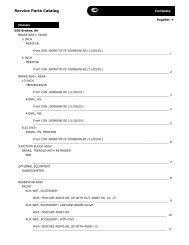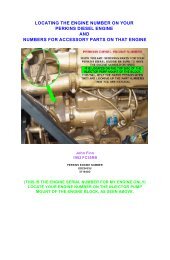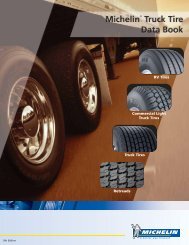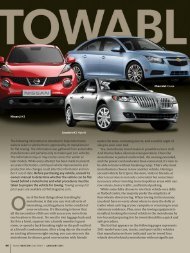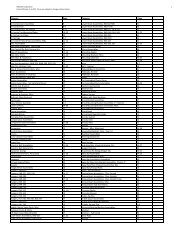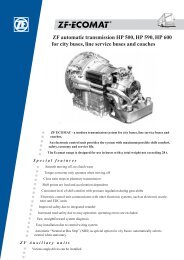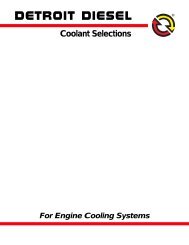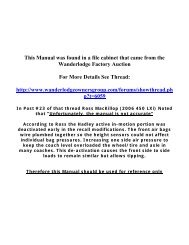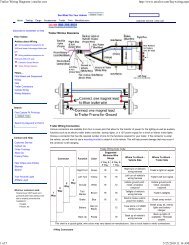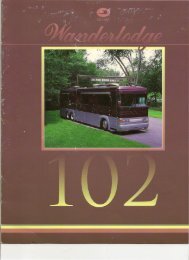Propane Tank OPD Exemption - Wanderlodge Owners Group
Propane Tank OPD Exemption - Wanderlodge Owners Group
Propane Tank OPD Exemption - Wanderlodge Owners Group
You also want an ePaper? Increase the reach of your titles
YUMPU automatically turns print PDFs into web optimized ePapers that Google loves.
Mr. Finn,<br />
The propane containers permanently installed on RV’s are built to the ASME Boiler and Pressure Vessel Code,<br />
and are not cylinders. There are no recertification requirements in the ASME Code.<br />
This correspondence is not a Formal Interpretation issued pursuant to NFPA Regulations. Any opinion<br />
expressed is the personal opinion of the author, and does not necessarily represent the official position of the<br />
NFPA or its Technical Committees. In addition, this correspondence is neither intended, nor should be relied<br />
upon, to provide professional consultation services.<br />
Very truly yours,<br />
Theodore C. Lemoff<br />
Staff Liaison<br />
From: IAMFLAGMAN@aol.com [mailto:IAMFLAGMAN@aol.com]<br />
Sent: Monday, March 05, 2007 3:28 PM<br />
To: Lemoff, Ted<br />
Subject: Re: RV PROPANE TANK CODES<br />
Mr. Lemoff,<br />
I want to thank you for you prompt reply I found it very helpful and now I have another question that you may be<br />
able to help me with.<br />
Some of these same propane filling stations are refusing to fill the propane tanks on our older Bluebird<br />
<strong>Wanderlodge</strong>'s, by determining that the date of manufacture on the onboard tank is too old and it has to be recertified.<br />
I have tried to contact propane dealers and rv repair facilities to have a re-certification done on my<br />
onboard 44.5 gallon propane tank and I can't find anybody that knows anything about this topic. Can you please<br />
help us find a source for the re-certification, or clear up any discrepancies with the code concerning this topic.<br />
These onboard tanks on our Bluebird <strong>Wanderlodge</strong>'s are used for heating, cooking and refrigeration purposes<br />
and some have propane powered generators onboard, but they do not have any connection with the main<br />
engine.<br />
Thank you again,<br />
John Finn<br />
--------------------------------------------------------------------------------------------------------------------------------------------------------<br />
If you would like to read the entire CODE , it can be viewed at the NFPA web site by first going to;<br />
http://www.nfpa.org/aboutthecodes/list_of_codes_and_standards.asp<br />
Then look under All NFPA Codes and Standards, then scroll down to find NFPA 58 Liquefied Petroleum Gas<br />
Code, then click on NFPA 58. Next scroll down to Additional Information about this document: and click on<br />
Preview this document. Next you will have to click on I AGREE under the Agreement. Next read through the<br />
explanation of the document and then click on Open NFPA 58: Liquefied Petroleum Gas Code, 2004 Edition, now<br />
a smaller drop down box will open temporarily until the actual NFPA 58 Liquuefied Petrolium Gas Code-2004<br />
Edition opens up. Now you can use the controls at the bottom to page through the CODE and thoroughly<br />
confuse your self, by trying to decipher the CODE for your self.<br />
I have come to the conclusion that after reading these items, our propane tanks permanently installed on our<br />
‘Birds do not fall under the codes for RV propane cylinders. I hope that this helps to resolve these issues.



